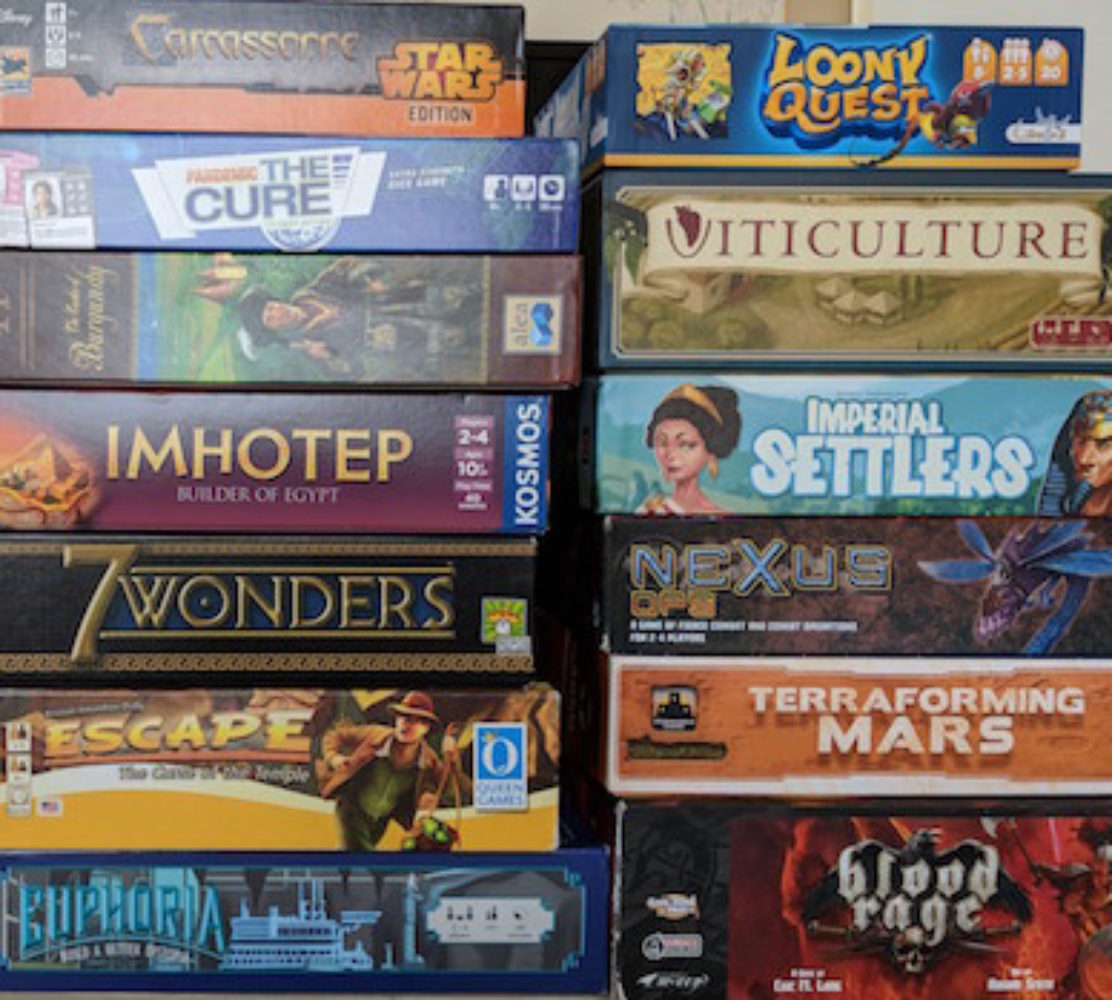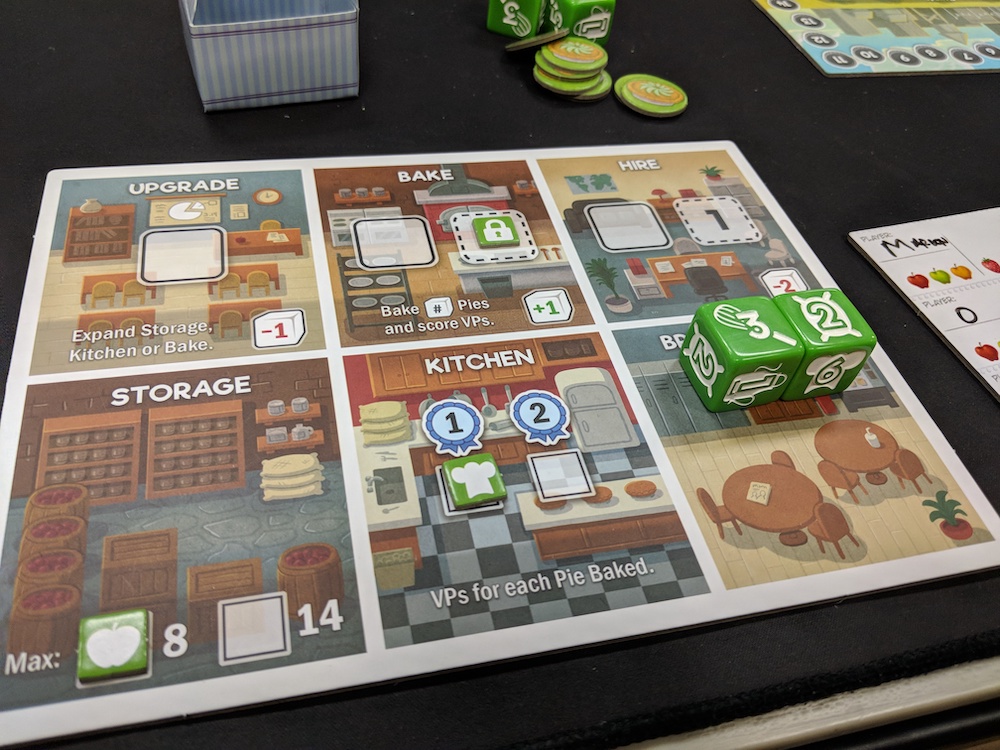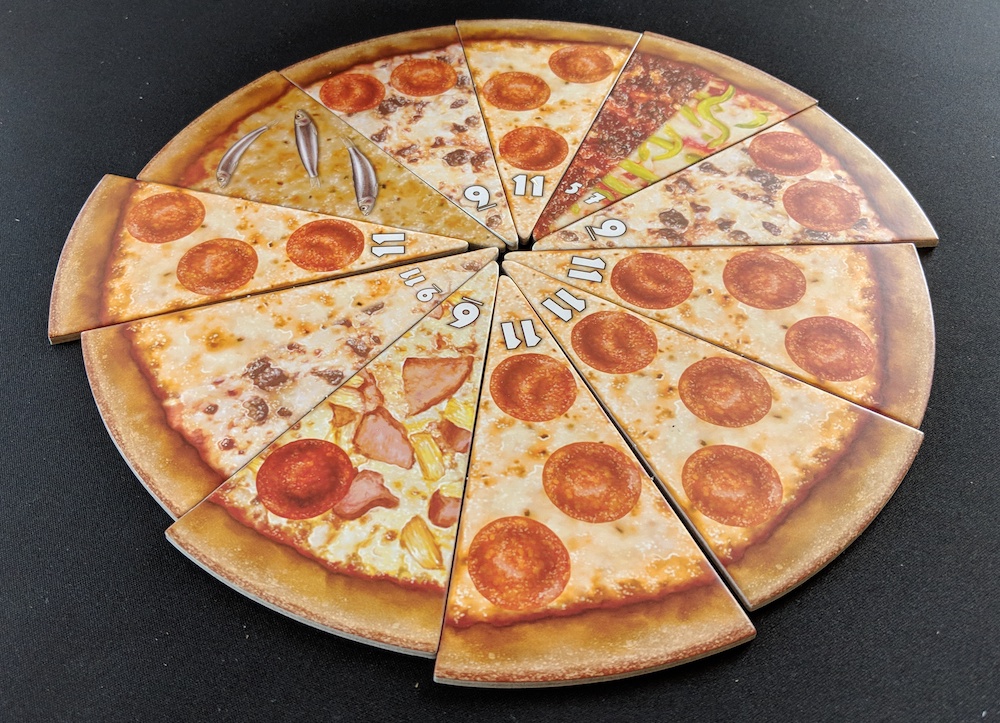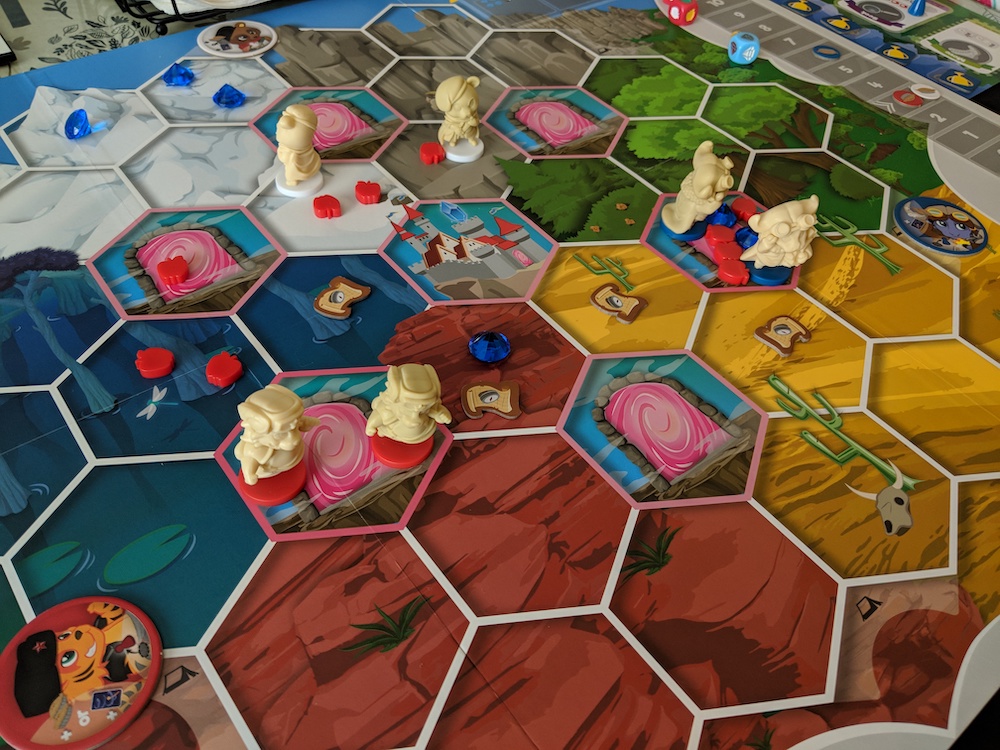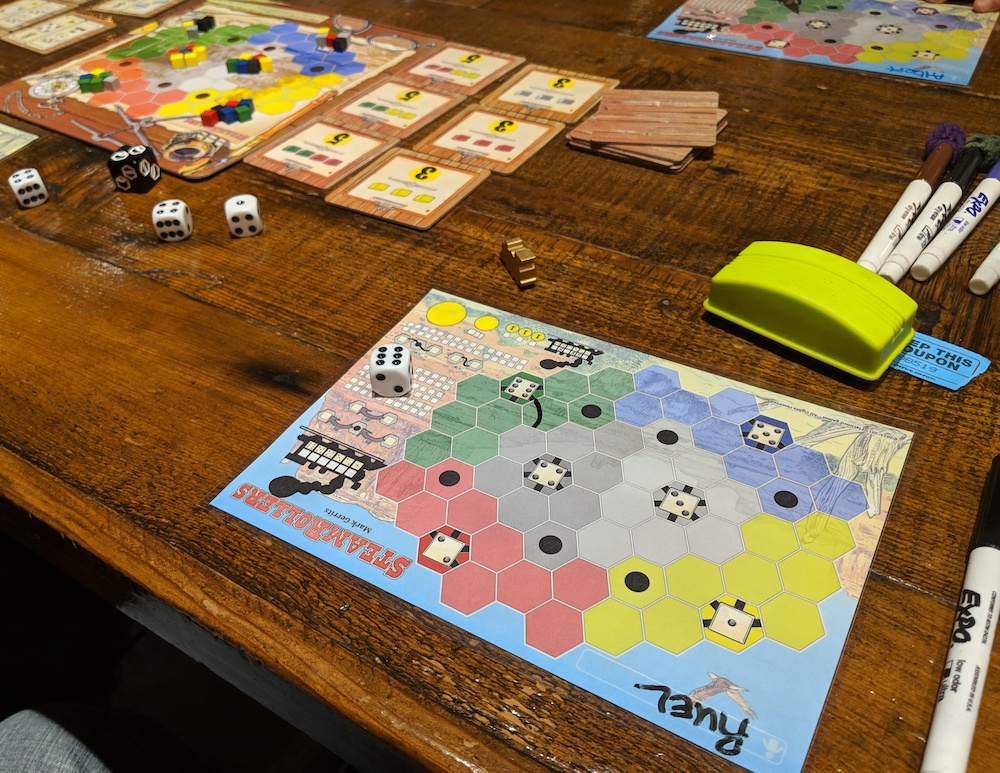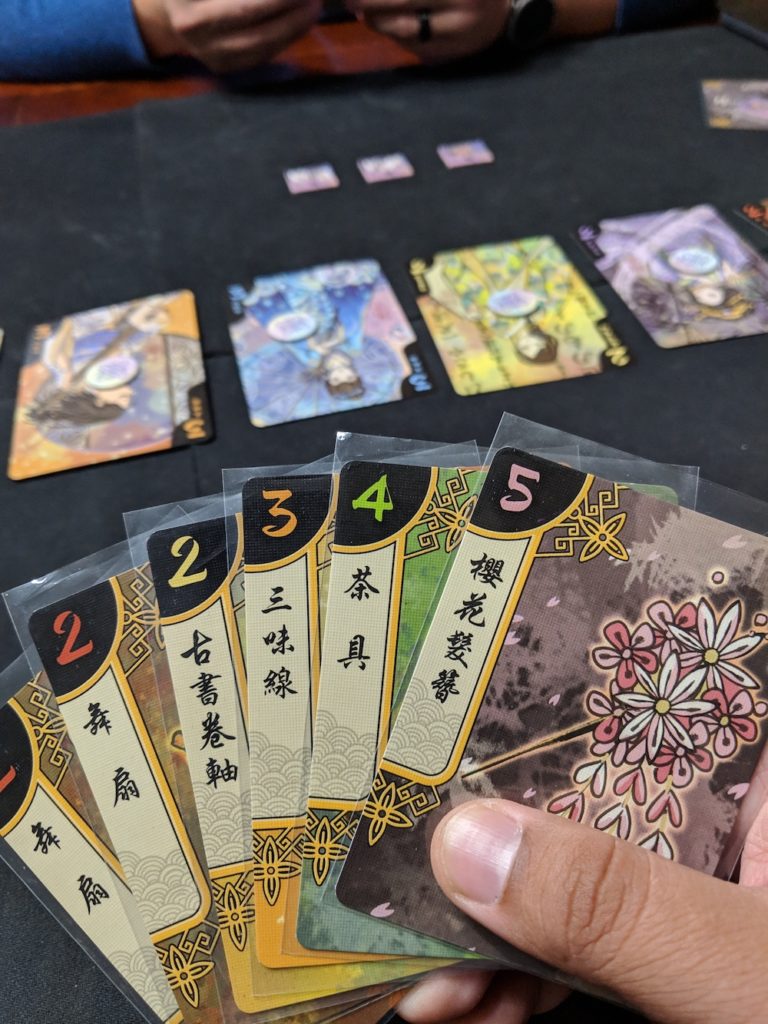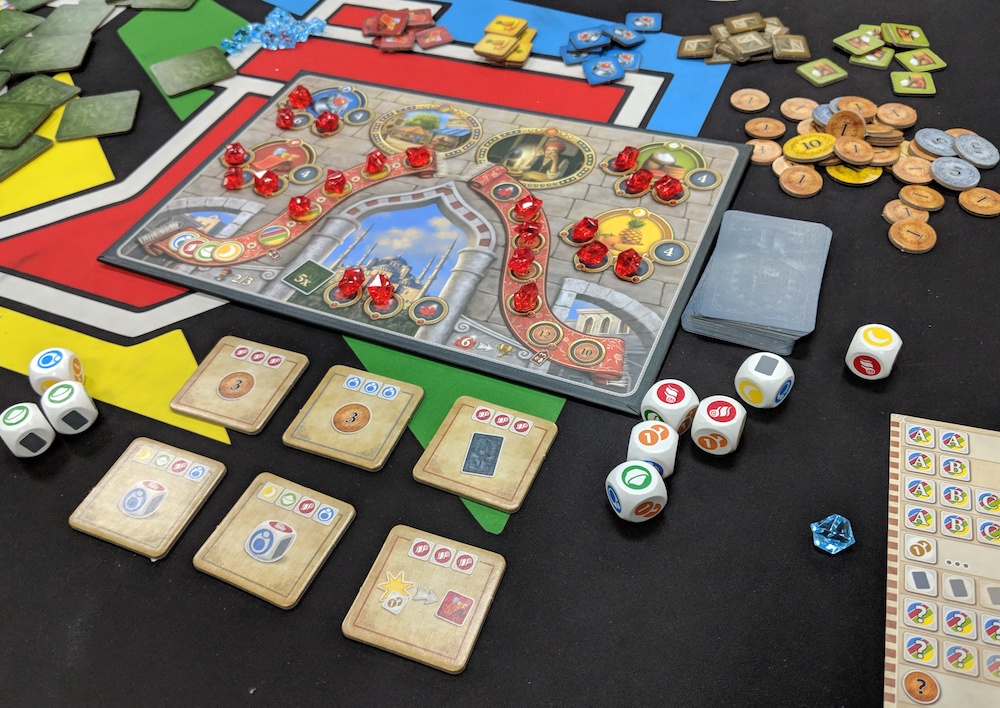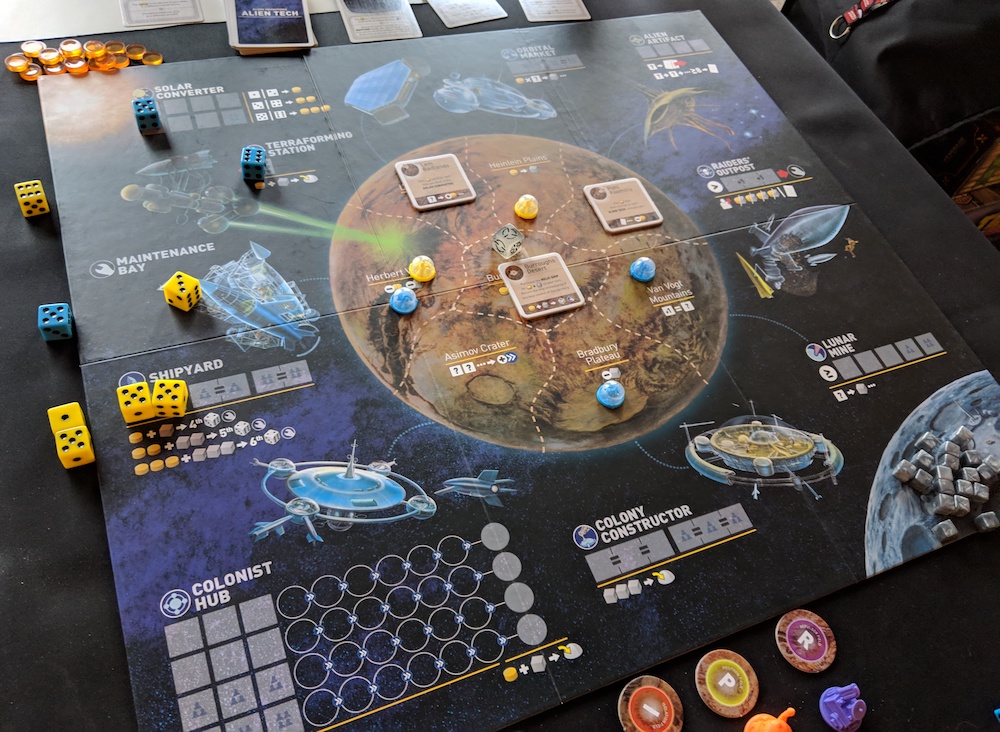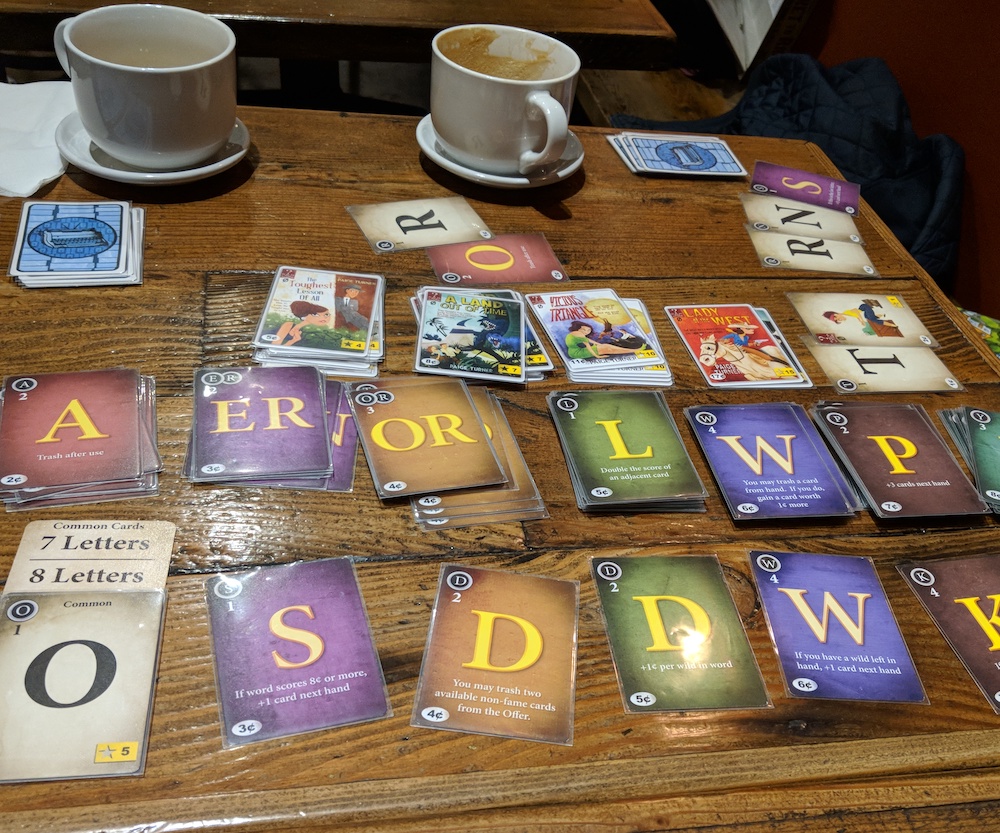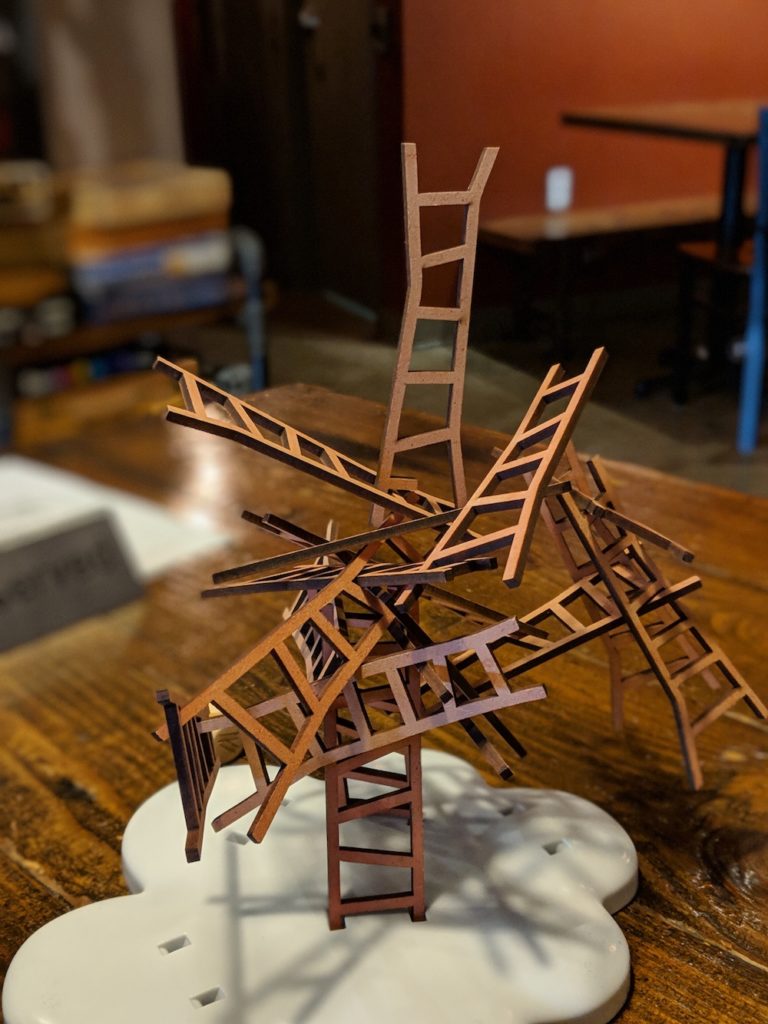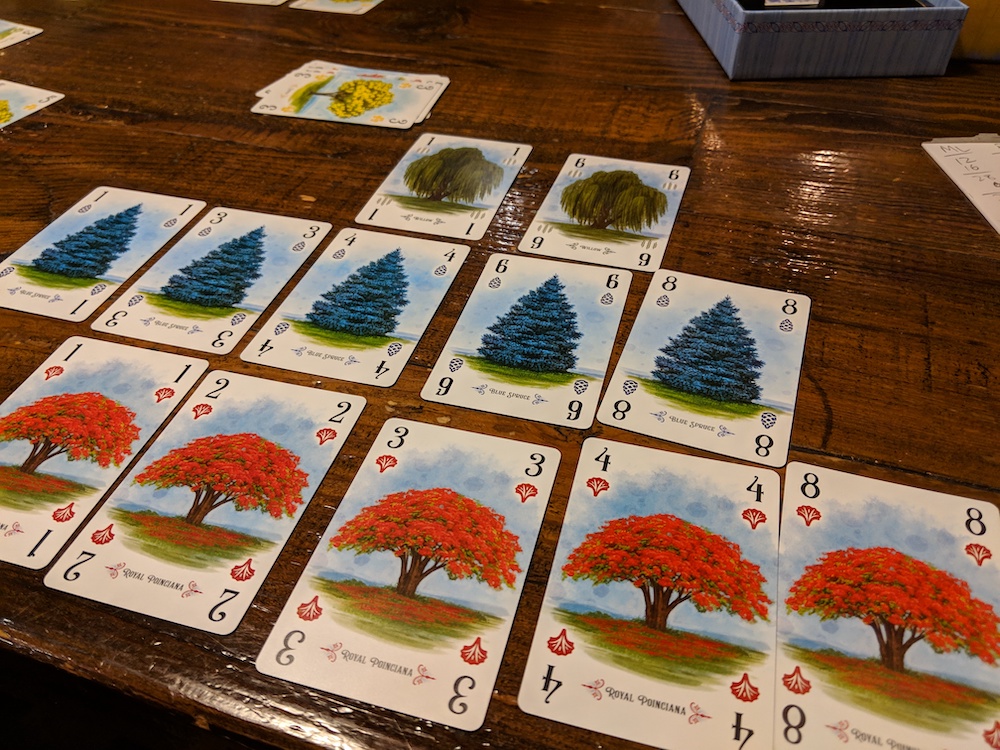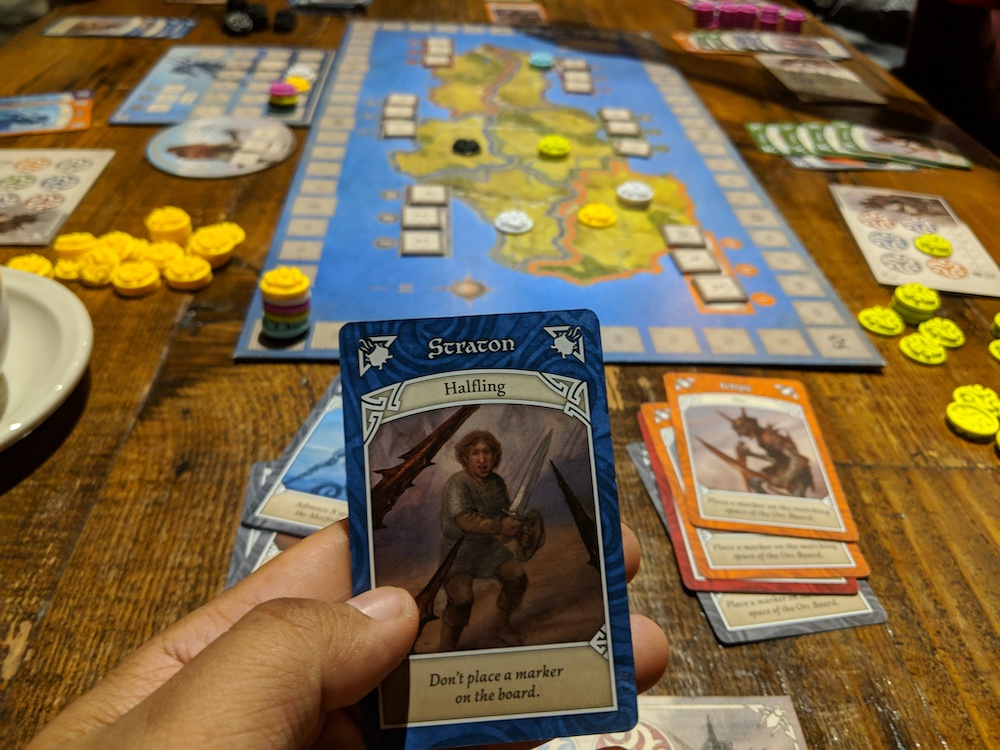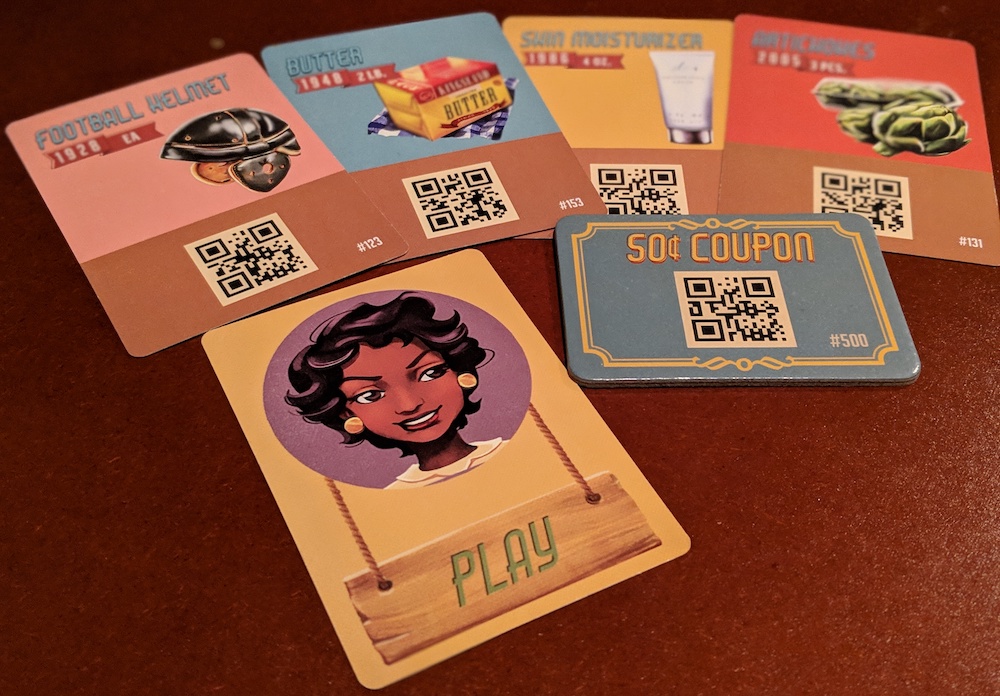Every March 14th math geeks everywhere celebrate Pi Day, dedicated to everyone’s favorite irrational number, 3.14. From wearing Pi-centrific clothing to eating pies priced at $3.14, there are plenty of ways to celebrate the big day. For us board gamers we can play games that feature pies, whether sweet or savory. Check out these three (sorry, I couldn’t find 3.14 games) games for a fun way to celebrate 3/14.
Pie Town
In this worker placement game, you and your opponents use dice to select actions and bake pies for victory points. You collect ingredients for your pies, hoping to bake your secret recipe for more points. Of course, you’ll need to add more workers to keep up with demand and make more pies and eventually you’ll try to guess your opponents’ secret recipes as well. While the artwork and components are solid, Pie Town fell flat with me. Perhaps your pie-loving group will enjoy it more than I did.
New York Slice
While I do love me a good ol’ slice of apple pie for dessert, my favorite pies are of the pizza variety. I like ‘em all, from a simple cheese slice to a pizza with all of the toppings (and anchovies!).
The components in New York Slice are absolutely perfect, from the thick cardboard slices to the rulebook menu. Leave this out on the table and it can be easily mistaken for the real thing. I love the I-cut-you-choose mechanism, which typically involves some tough choices. Can you force your opponent to take something you don’t want? Or will they choose something just to spite you? Either way, don’t play New York Slice on an empty stomach; your stomach will be grumbling within the first few turns.
My Little Scythe
I wrote about my love for My Little Scythe over on Geek & Sundry, so let me just recap here. You’re in this My Little Pony-inspired world, trying to win a friendly tournament. One of your goals is to make pies: gather enough apples, then bake your pie. If you later travel into a space with an opponent, it’s time for a pie fight! Just like the original Scythe, you have a combat dial that you can modify with cards. There are several ways to win the game and no matter which route you choose, you’ll have a fantastic time playing My Little Scythe.
